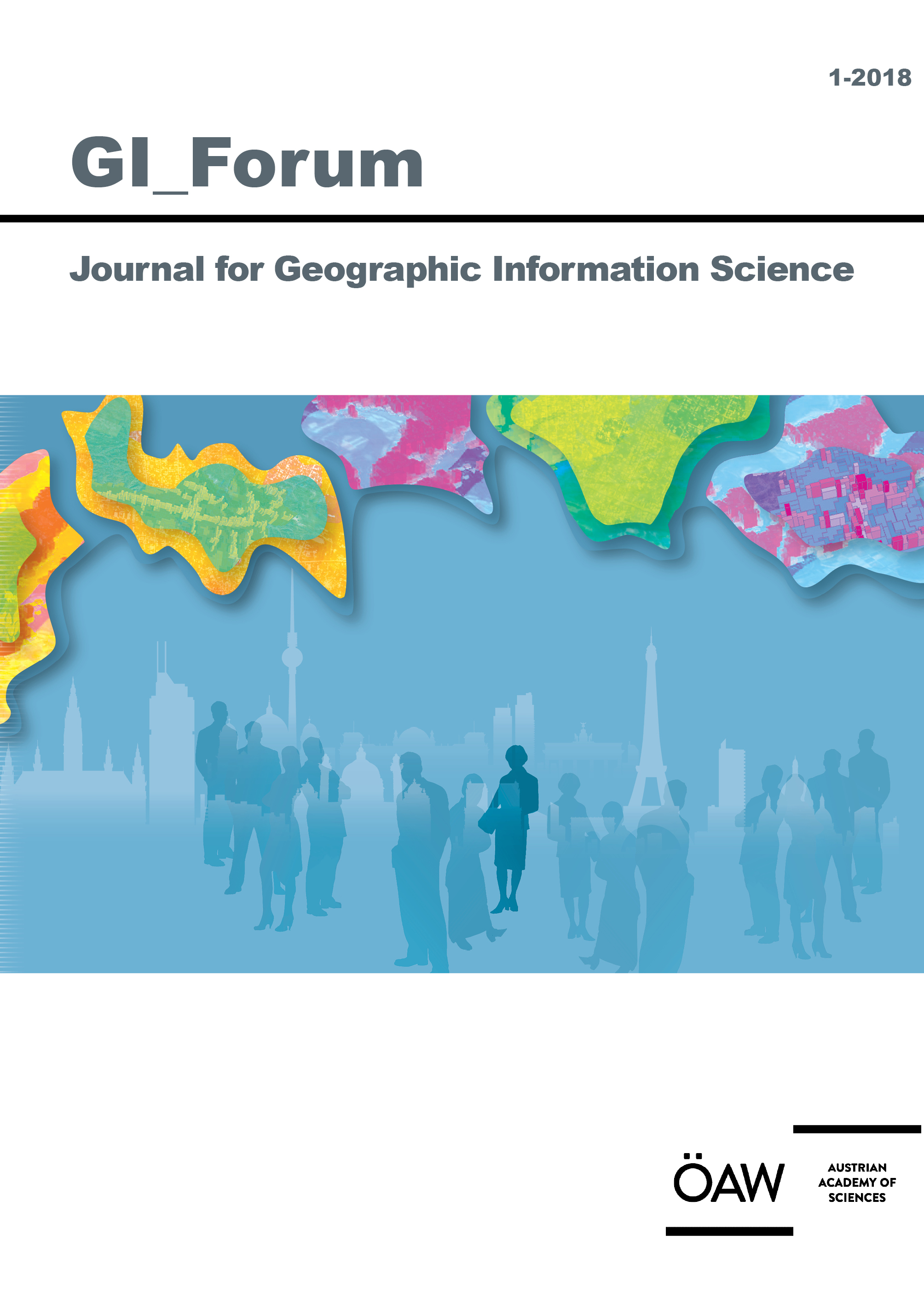Adrijana Car – Thomas Jekel – Josef Strobl – Gerald Griesebner (Eds.)
GI_Forum 2018, Volume 6, Issue 1
Journal for Geographic Information Science
Luke Thomas Clasper
S. 316 - 335
doi:
10.1553/giscience2018_01_s316
Verlag der Österreichischen Akademie der Wissenschaften
doi:
10.1553/giscience2018_01_s316
Abstract:
The informal and unofficial nature of how citizens discuss and conceive geographical entities such as neighbourhoods has traditionally been difficult to capture. Ambient Geographic Information (AGI) from social media services offers researchers an opportunity to collect large amounts of geo-referenced information concerning vernacular geography. Twitter data was harvested and analysed in R statistical software in order demonstrate whether using geodata from social media is a feasible method for spatially defining vague, vernacular neighbourhoods in Inner London, UK. The results suggest that social media data can be a valuable source for capturing vernacular geography from which vernacular neighbourhoods could be delimited. The study also revealed factors which may have contributed to vernacular neighbourhood demarcation. Twitter data was seen to both mirror the physical form of the underlying topography and reflect the social character of the city’s land use. This work builds upon previous attempts to investigate vernacular geography which used more traditional methods, such as sketch maps and interviews. It also examines how manual qualitative coding can improve data quality and demonstrates how R statistical software can be used to capture, analyse and present geospatial data.
vernacular geography, ambient geographic information, R project, qualitative GIS, urban morphology
Published Online:
2018/07/02 07:33:20
Document Date:
2018/06/22 08:16:00
Object Identifier:
0xc1aa5576 0x00390cec
Rights:https://creativecommons.org/licenses/by-nd/4.0/
GI_Forum publishes high quality original research across the transdisciplinary field of Geographic Information Science (GIScience). The journal provides a platform for dialogue among GI-Scientists and educators, technologists and critical thinkers in an ongoing effort to advance the field and ultimately contribute to the creation of an informed GISociety. Submissions concentrate on innovation in education, science, methodology and technologies in the spatial domain and their role towards a more just, ethical and sustainable science and society. GI_Forum implements the policy of open access publication after a double-blind peer review process through a highly international team of seasoned scientists for quality assurance. Special emphasis is put on actively supporting young scientists through formative reviews of their submissions. Only English language contributions are published.
Starting 2016, GI_Forum publishes two issues a Year.
Joumal Information is available at: GI-Forum
GI_Forum is listed on the Directory of Open Access Journals (DOAJ)




 Home
Home Print
Print
 References
References
 Share
Share
